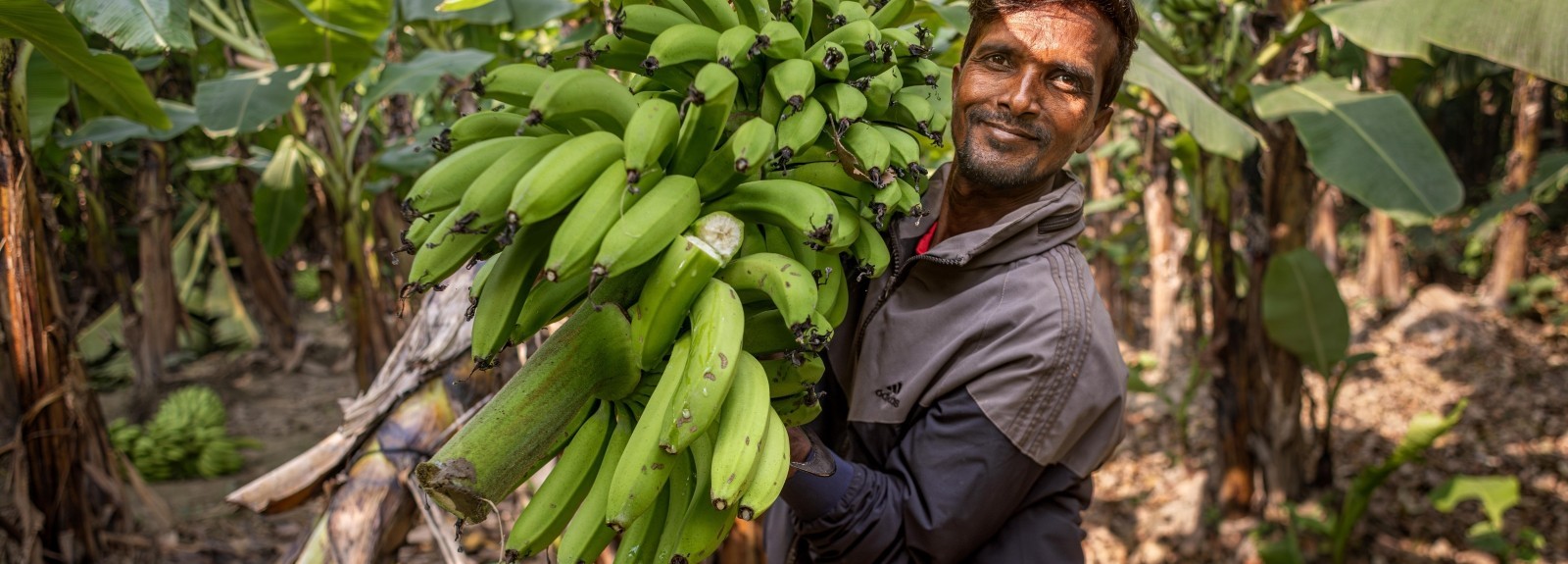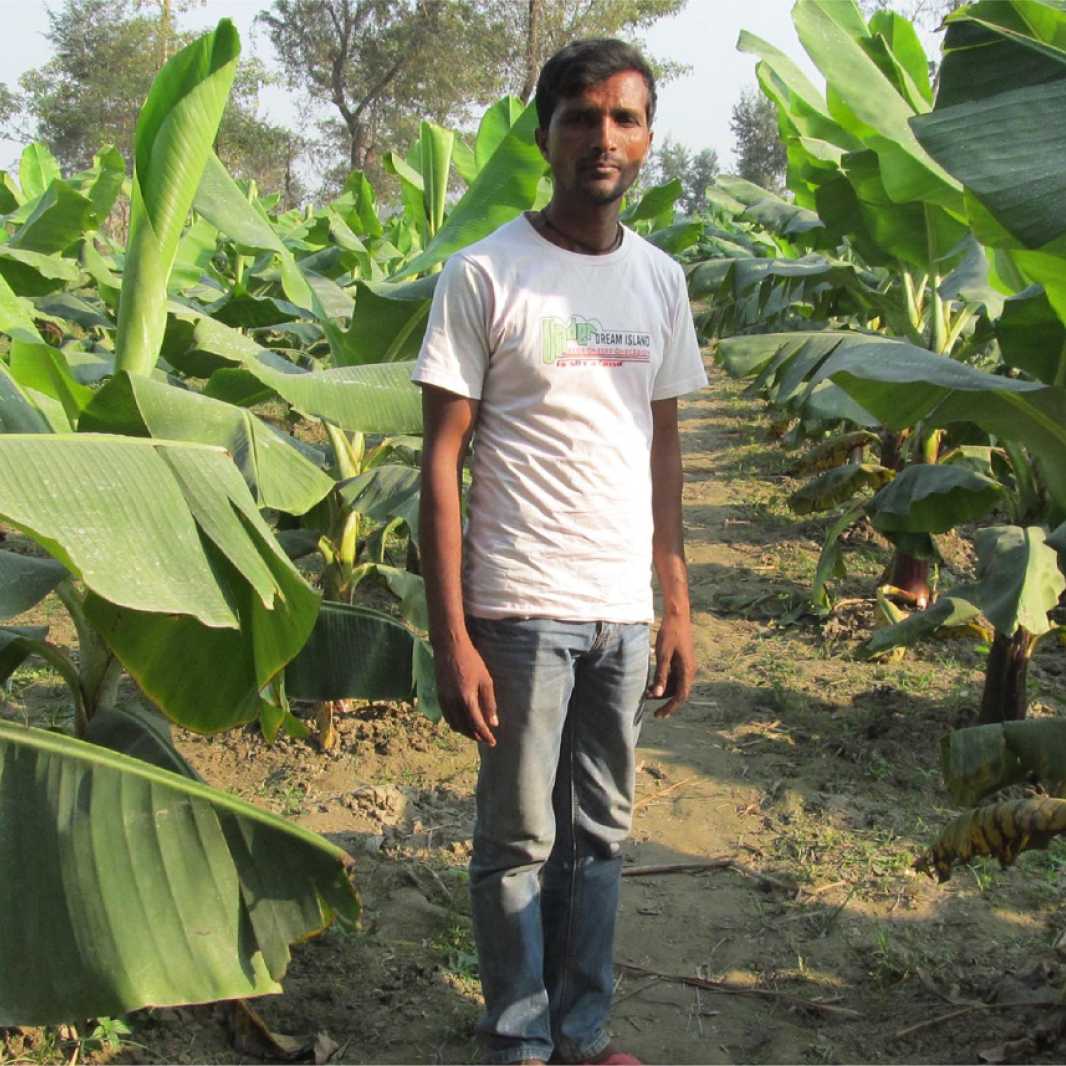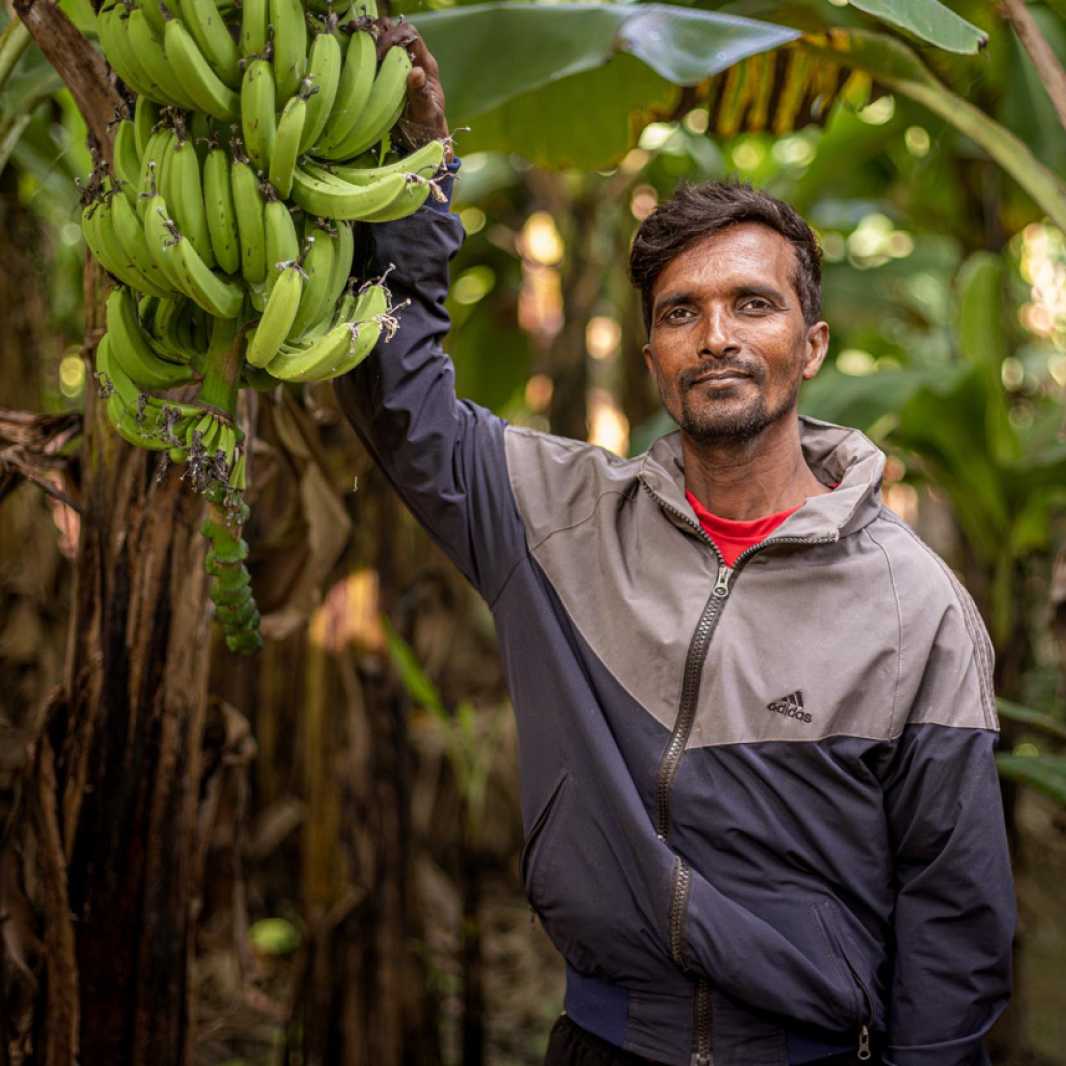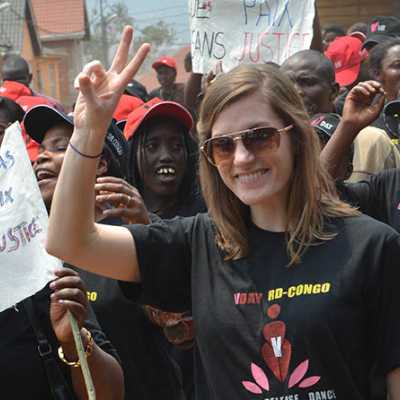Did you know bananas are the top selling fresh fruit in the United States? Here, bananas are as commonplace in the kitchen as a carton of milk or a toaster oven.
But for Jayantri Kewat, bananas were the opportunity of a lifetime.
Expanding opportunity to end poverty
Jayantri, 48, had tried many jobs to meet his family’s needs. He served as a police officer. He hauled buckets of soil as a construction laborer. He tried fishing. Despite being intelligent and industrious, his opportunities have been limited because he is Dalit — meaning he was born into one of the lowest castes in Nepal’s hierarchy.
When none of these jobs put enough food on his family’s table, Jayantri returned to his small plot of land to try growing his own. Yet his hard work was fruitless. Every year, more and more of his crops were destroyed by flooding.
How floods affect the poorest communities in Nepal
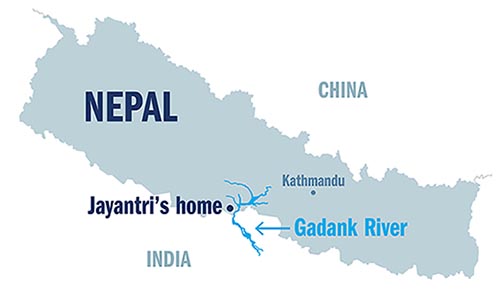
Jayantri’s family lives near the river that forms the border between Nepal and India. Farmers depend on seasonal monsoons to grow their crops, but during the last 15 years, these rains have grown more intense. Due to erosion and the heavy rains, the river overflows multiple times a year — washing away crops, livestock, homes and even, sadly, loved ones in the poorest communities.
Flooded land near the border of Nepal and India
“When the flood came, we were not sure we would survive,” Jayantri recalls. Without warning, his land would be covered in two feet of water. He and his wife had to grab their eight small children and flee to higher ground, where they would live in a tent for weeks and even months at a time.
Helping flood-prone communities adapt and thrive
In 2014, Lutheran World Relief began helping Jayantri’s community prepare for and survive the harrowing rainy seasons. This work included education about search and rescue, disaster preparedness and flood-resilient agriculture.
This is also how Jayantri learned about banana farming.
To help improve his family’s livelihood, LWR provided Jayantri with 1,500 flood-resilient banana saplings and in-depth training on business and climate-smart farming. He caught on quickly and turned a profit on his first harvest. Then he invested these profits into planting more banana trees, plus other crops he learned were well-suited for flood-prone land.
Bananas changed their family’s life
In 2021, Nepal experienced record-breaking floods. Crop losses were widespread and devastating. But that year, Jayantri earned more than 43 times his original income. All because he had the opportunity to learn flood-resilient farming practices and sound business skills.
Thanks to banana farming, Jayantri has built his family a sturdy house on high ground to replace their woven grass home on the floodplain.
Today, Jayantri has more than 7,000 banana trees,
and his farm is 20 times its original size.
Because of bananas, Jayantri has been able to:
-
Increase his farm and income many times over.
-
Build a new brick house on high ground to keep his family safe and dry.
-
Ensure his children are well fed and have access to quality education.
-
Send his second oldest daughter to a four-year university, with hopes that the others will follow.
-
Employ young men from the community to work on his farm.
-
Purchase a truck to transport his bananas to the market — eliminating the middlemen whose low prices kept his family in poverty.
-
Share his knowledge about banana farming with his neighbors through formal and informal training.
-
Transport his neighbors’ bananas to the market so everyone can obtain higher prices.
-
Leverage his strong reputation in the community to get involved in local politics to influence positive change.
“He is the master of banana farming,” says Jayantri’s close friend and neighbor, Ramawatar Prasad Harizan. With the help of his friend, Ramawatar also makes a comfortable living growing bananas.
While Jayantri’s family and community still face challenges, life tastes much sweeter than it used to.
“I wouldn't have made it this far if I didn't get the training,” Jayantri says. “I probably wouldn't have made it. I feel happiest because I can adequately provide for my family now.”
Jayantri with six of his eight children.
Thank you for bringing bananas into Jayantri’s life so that he could cultivate a brighter future for his family.


